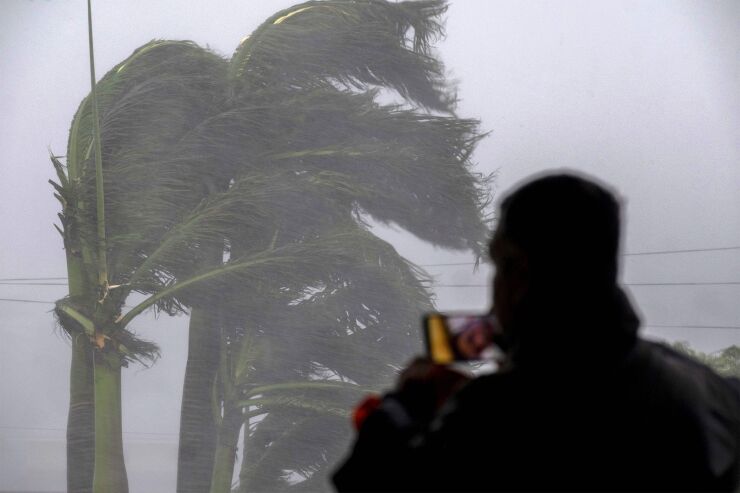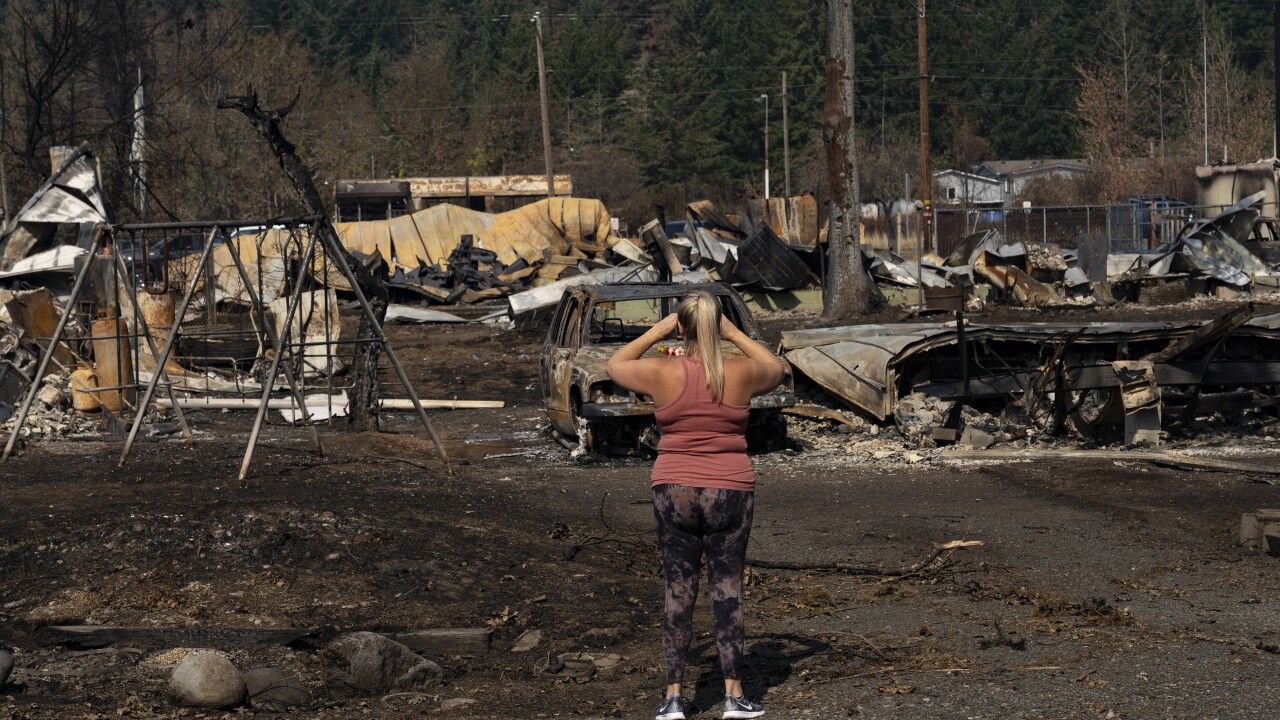(Bloomberg) -- Investors who backstop Florida's insurance industry by buying catastrophe bonds are girding for substantial losses from Hurricane Ian, threatening to crimp a key source of capital for the sector and push up insurance costs for residents.
Ian's
"The scale of insured losses that appear to be emerging from Hurricane Ian on the back of five prior years of heavy losses will instigate the sharpest crisis in catastrophe insurance markets since the aftermath of Hurricane Andrew in 1992," Michael Millette, managing partner at Hudson Structured Capital Management, said. He added that investors will be forced to reevaluate the entirety of the landscape, including cat bonds, "to rebuild the market."
The insurance industry surpassed
Catastrophe bonds, also known as cat bonds, are issued by insurers to backstop risk. The instruments have short maturity dates -- as short as three years -- and promise above-market yields to investors who take on the risk that their principal could be wiped out by a severe enough natural disaster.
Investors in cat bonds "collect premiums when there is no disaster and they pay out when a disaster occurs," said Tom Johansmeyer, who heads Verisk Analytics Inc.'s property-claim services division. "The job of these instruments is to inject capital into the industry at a time when the industry needs it."
While it's too early to determine exactly what bonds might trigger due to the hurricane, securities valued at as much as $19 billion may be at risk from Ian, according to an analysis by data provider Artemis. Of those, $5 billion in bonds cover risk specifically tied to named storms in Florida, while the others apply to general events such as wind damage or flooding.
The securities have surged in popularity, with a record $12.8 billion in new issuance in 2021. The first half of this year saw more than $8 billion in cat-bond issuance even amid weaker returns,
Insured damages from Ian will likely be above $20 billion in the residential market, Wells Fargo & Co. analysts led by Elyse Greenspan said in a note published after the hurricane hit land on Wednesday.
Private insurers focus on damages brought on by wind, with flood insurance primarily handled by a federally managed program. That could change the calculus in determining losses suffered through cat bonds. And, given the cyclical nature of insurance and cat bonds in particular, the market could ultimately benefit.
"The market was already constrained," said Philipp Kusche, a partner and global head of insurance-linked securities and capital solutions at TigerRisk Partners, a broker dealer and reinsurance broker. "This will add more pressure and you could see prices go up which in turn could attract more capital, including opportunistic capital."






